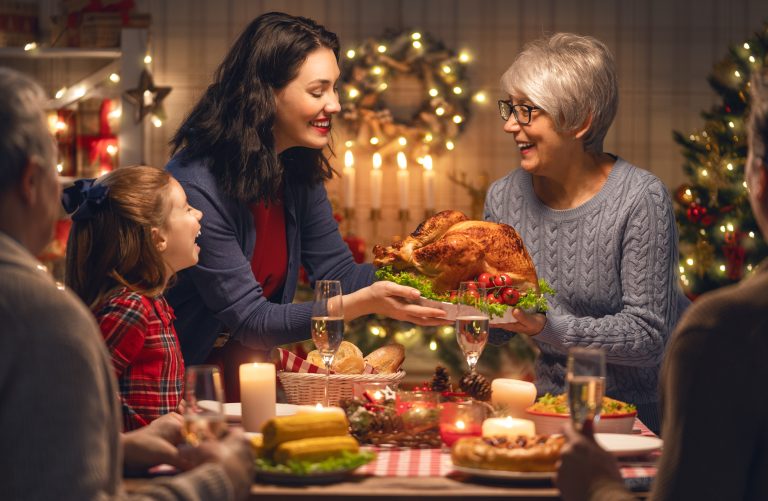It’s not difficult to over eat and drink at Christmas and the new year period. We are faced with temptation everywhere from tubs of discounted chocolates in the supermarket, mince pies, Christmas cakes and puddings, to an array of alcohol which tends to lend itself to Christmas such as spiced gins, liqueurs and cream based tipples. We are encouraged to over spend and over indulge. It’s been suggested that the average Brit consumes between 4000-5000 kcals on Christmas day alone! It seems that on 25th December we write off any dietary regulation and eat and drink what we want.
How to eal well?
According to the Eatwell Guide (Public Health England, 2018) adult males should consume around 2500 kcals per day and females around 2000 kcals per day to maintain a healthy weight, so it’s easy to see that consuming double this amount of calories is going to lead to weigh gain. But it wouldn’t be so bad if it was just one day a year that we put aside any control and ate what we wanted, but over the festive period, which can be up to a month, people may be over consuming regularly due to Christmas parties, family get togethers and general festive eating and drinking.
Top Tips to avoid too much overindulgence
What can we do about keeping our eating and drinking under control then over the festive period? I’m not a killjoy and enjoy the celebrations as much as anybody else, but I try to be a little mindful of what I’m consuming so that when it comes to 1st January I don’t feel like I’ve over indulged and have a mountain to climb to get back to a healthy weight. It’s also worth mentioning that whilst it’s nice to have tasty treats, sometimes having too many can give you indigestion and other issues such as a sugar rush and then a crash, and you just don’t feel good.
Here are my top tips to avoid too much overindulgence
- If you know you will be drinking alcohol, try to stay hydrated with a glass of water between alcoholic drinks. This also could help to reduce your overall alcohol intake as you are potentially substituting every other glass of alcoholic drink with water. Drinkaware recommend using their Drinkaware App, which can help you track what you are drinking and helping you stay within recommended limits (Drinkaware, 2019).
- Try to avoid mindlessly eating chocolates and treats throughout the day. This is easily done if you work in an office and there is say a tub of chocolates nearby or at home with treats in the house. Try to save a treat for mealtimes.
- Keep the fruit bowl full and snack on oranges and apples for example, and save your main calories for a meal. Fruit is packed with nutrients like vitamin C and fibre, which will help with keeping your immune system in tip top condition during the winter months and help your gut digestion
- Try to get some exercise every day. Wrap up warm if it is cold and get out after breakfast for a brisk walk for minimum 30 minutes. This will help wake you up and regulate your circadian rhythm that helps with your sleep/wake pattern. Exercise helps in many other ways too, not least improving your feeling of wellbeing and good mood
- Make sure you have a filling breakfast such as porridge with some fruit, or scrambled eggs on wholemeal toast. Having a filling breakfast helps reduce snacking later on.
- Try not to eat and drink late in the evening as this can affect your sleep and could be a cause of indigestion (Nakajima, 2018)
Not all of the food and drink we consume over the festive period should be avoided or limited. Whether you decide to have a traditional Christmas meal, or choose to eat something different such as a vegan or vegetarian meal, there is an opportunity to eat healthy food during this time.
Turkey
Turkey is the traditional meat to consume in British households on Christmas day, although many people may choose to eat something else. Turkey is a white poultry meat, low in calories, high in protein content and a complete protein, that is it contains all the amino acids required for protein synthesis in the body. It is also a good source of haem iron (the more easily absorbed form), low in saturated fat (especially the breast meat) and high in B vitamins. It is also a good source of selenium an important nutrient for keeping our skin, hair and nails healthy.
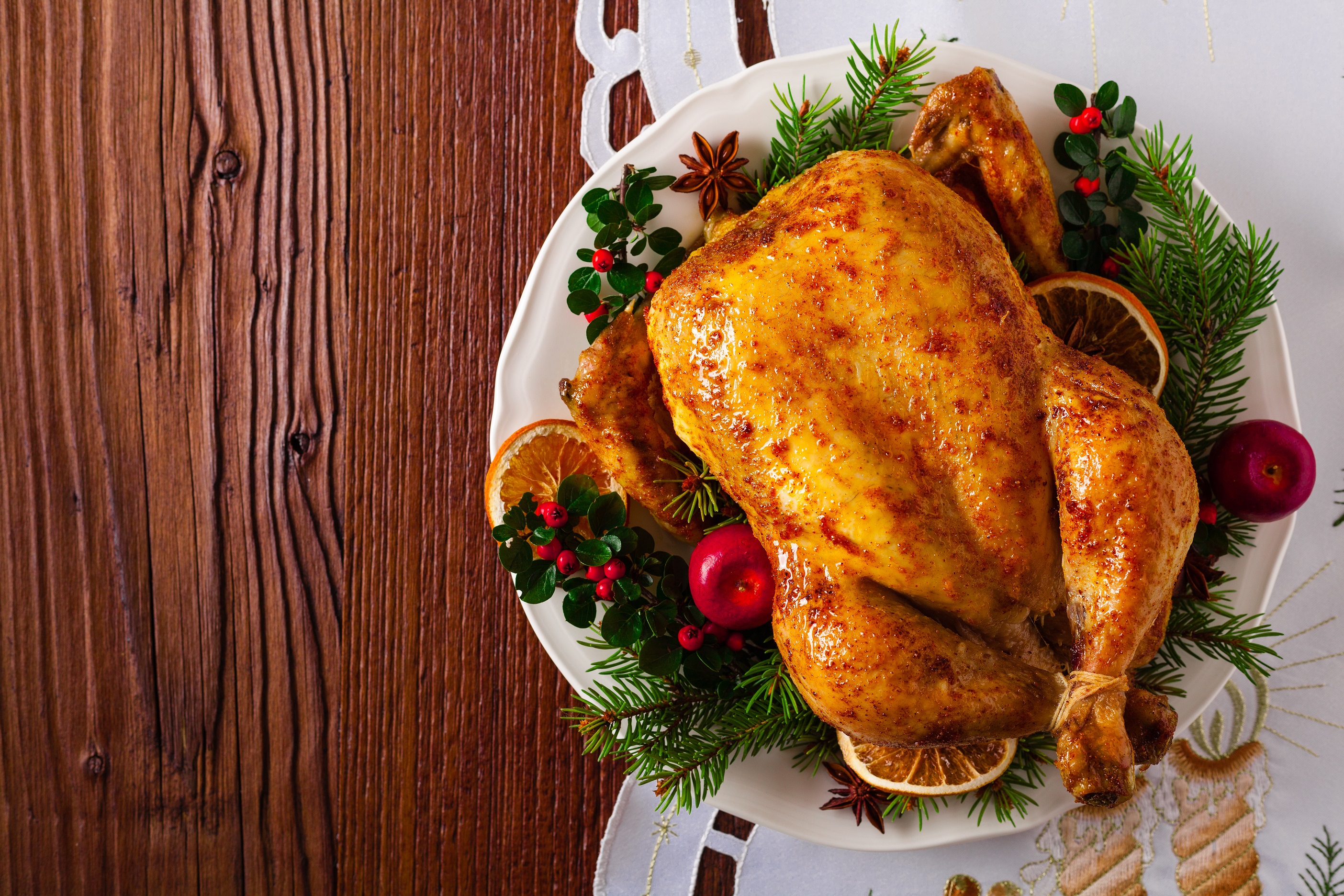
100 g of turkey breast meat contains 0.7 g of saturated fat, 33.7 g of protein and is 153 kcals. When you compare this to other meats such as pork, lamb and beef, turkey comes out on top for lowest saturated fat, highest protein and lowest amount of calories. So Turkey is a great choice for Christmas day, just be sparing with the gravy!
Fish
Salmon tends to be a popular fish to serve at perhaps a New Year’s eve party as it makes a great centre piece for the table, especially if a whole salmon is cooked. Salmon is a highly nutritious food stuff. It provides essential fatty acid omega 3, important for many bodily functions. The Eatwell Guide recommends that we eat at least two portions of fish every week, one being oily fish such as salmon (Public Health England, 2018). Serve it with a lightly dressed mixed salad and some new potatoes.
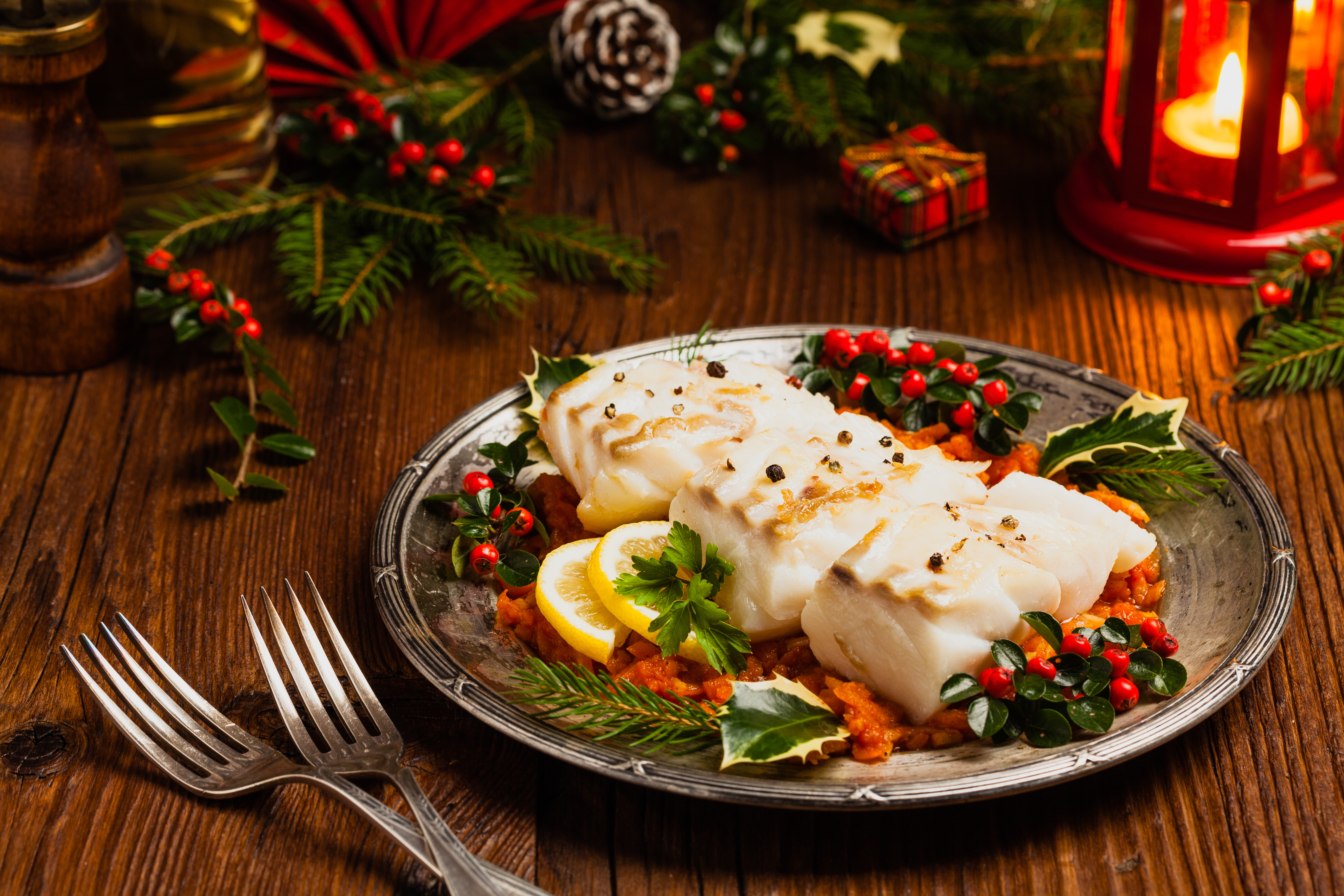
Vegetables
Seasonal vegetables are great served at Christmas. Winter veg such as sprouts, red cabbage, cauliflower and parsnips all taste great. Although many people might think about Brussels sprouts tasting bitter, many nowadays, especially the ‘baby’ varieties are not and when steamed lightly are really tasty. Sprouts are packed with nutrients such as vitamins K, C and E, folate and are high in fibre.
Red cabbage is another great veg packed with nutrients, especially vitamins K, C and B6. The polyphenols in red cabbage are great for our overall health and can be protective against risks of certain diseases such as cardiovascular disease. It’s important to consider when preparing red cabbage and any other types of veg, the way they are cooked will retain or enhance their nutrient profile. Try to steam or microwave veg to stop the nutrients from being lost and limit additions of butter, sugar and others, such as bacon which add calories, fat and sugar to otherwise healthy foods.
During the festive period it’s a good opportunity to fill up on a variety of vegetables at meal times. Whilst we might love to eat roast potatoes and lots of gravy, try to pile veg onto your plate and limit the roasties.
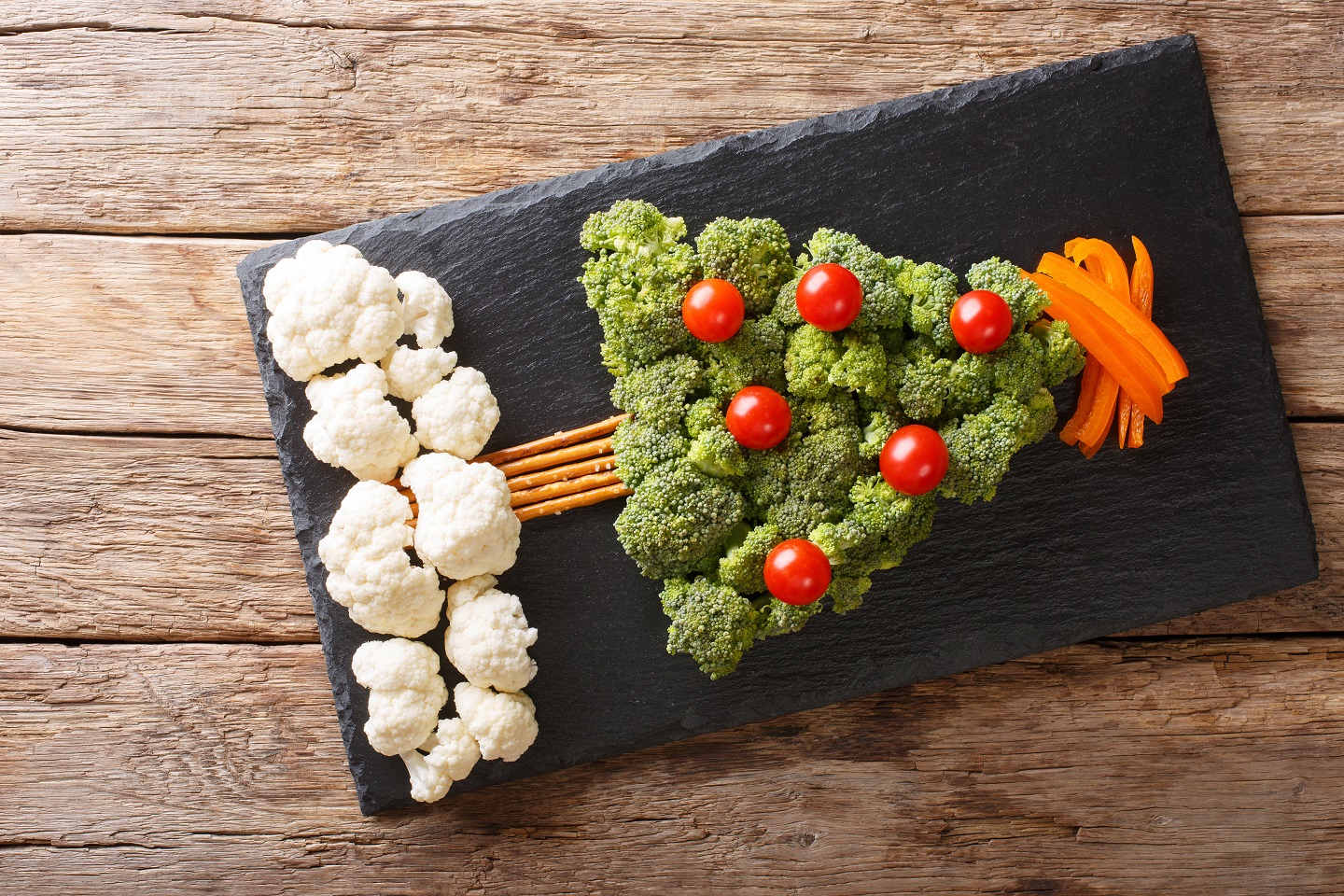
Vegan or vegetarian options
More and more people are choosing a meat free lifestyle and this makes preparing festive meals a little different to the past traditional options. You can get all your nutritional needs from a vegetarian or vegan diet, it just takes a little planning. There are lots of options now available for meat free eaters either via inventive supermarket options or recipes from chef’s cook books. Eating vegan or vegetarian though doesn’t automatically make a meal healthier than a meal containing meat or fish.
A person who chooses not to eat animal products can still eat the great winter vegetables available at this time of year, but may also like to have something that is a centre piece of the meal. A whole cauliflower roasted with spices makes a great tasty alternative to meat. Other ideas include mushroom tarts or nut roast (see more below about nuts). Vegans need to be a little careful that they are getting enough vitamin B12, iron, calcium and iodine, as most intake of these nutrients are from animal sources. Vegans should consider consulting a nutritionist to ensure their diet is nutritionally balanced and maybe also consider consuming fortified foodstuffs containing these nutrients or taking supplements to ensure they do not become deficient.
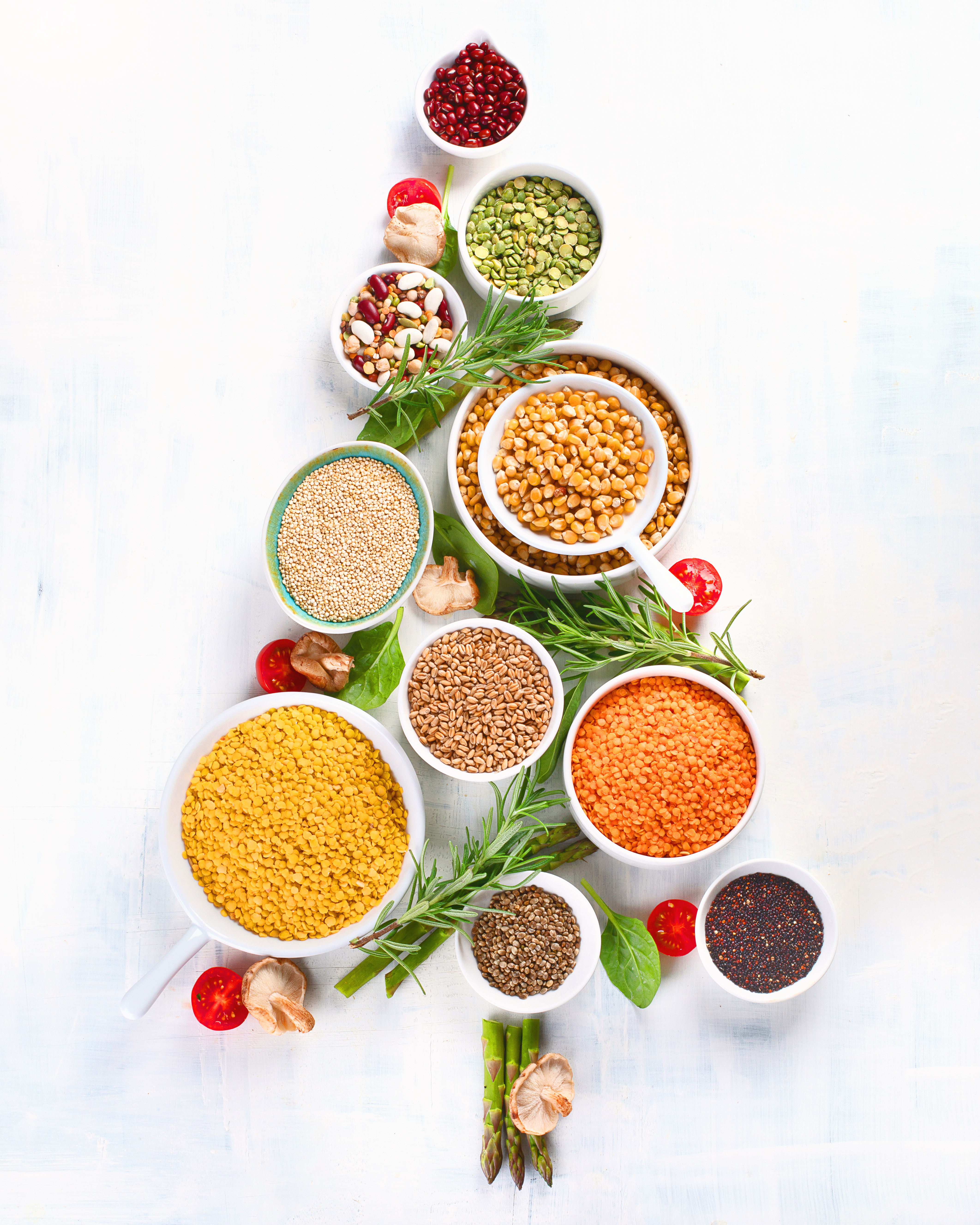
Cheese
Whilst too much cheese is not advisable as it is high in saturated fat, cheese in moderation is a very good source of calcium. Cheese that is lower in calories than some other cheese includes Greek feta, goats cheese, mozzarella, parmesan and camembert. Whilst anything eaten in excess is not always healthy, the same applies to cheese. However, for those that love the taste of cheese and the feelings of satisfaction it gives, try to consume it in moderation i.e. small slice, as this is preferable to over indulging even if it is the lower calories varieties.
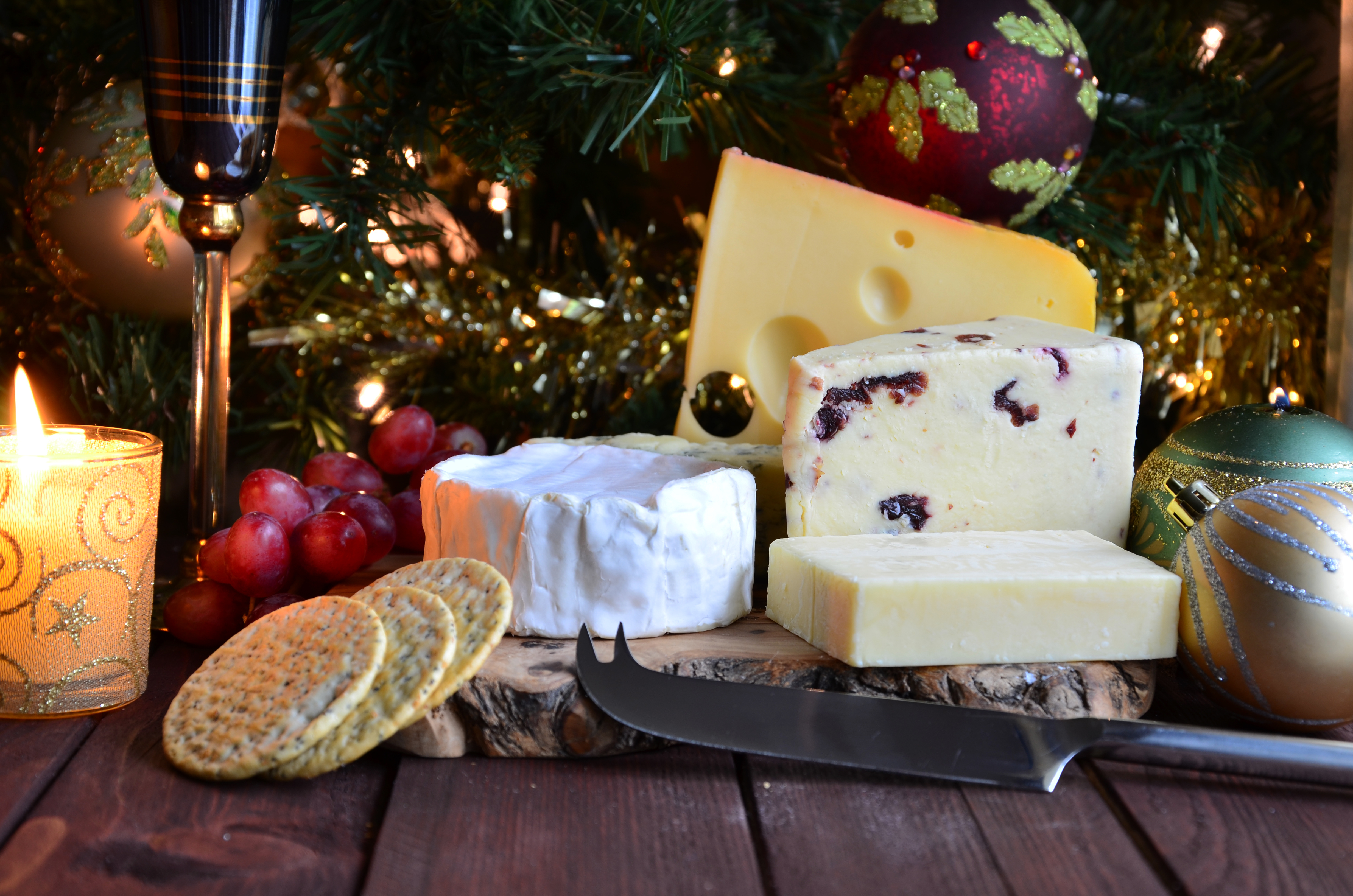
Nuts
Nuts are probably one of the best foodstuffs that are available in abundance over the festive period. Nuts are highly nutritious, taste great and make you feel fuller for longer. Brazil nuts for example are a good source of selenium an antioxidant which helps us fight disease. Walnuts are a great source of Omega 3 fatty acid (plant source), which is useful for non-meat eaters. Nuts are also high in vitamin E as well as B vitamins, protein, fibre and healthy fats.
However, nuts are high in calories, so it is advisable to consume only a handful of mixed nuts a day. There is some evidence to suggest however that in studies people who ate a handful of nuts each day compared to those who didn’t, did not increase or decrease their weight over a period of time. It was thought that due to the nature of nuts not all fat is released during chewing and digestion and therefore passed through the gut unabsorbed. (Flores-Mateo, 2013) Nuts also make you feel fuller for longer so you are less likely to snack on unhealthy treats.
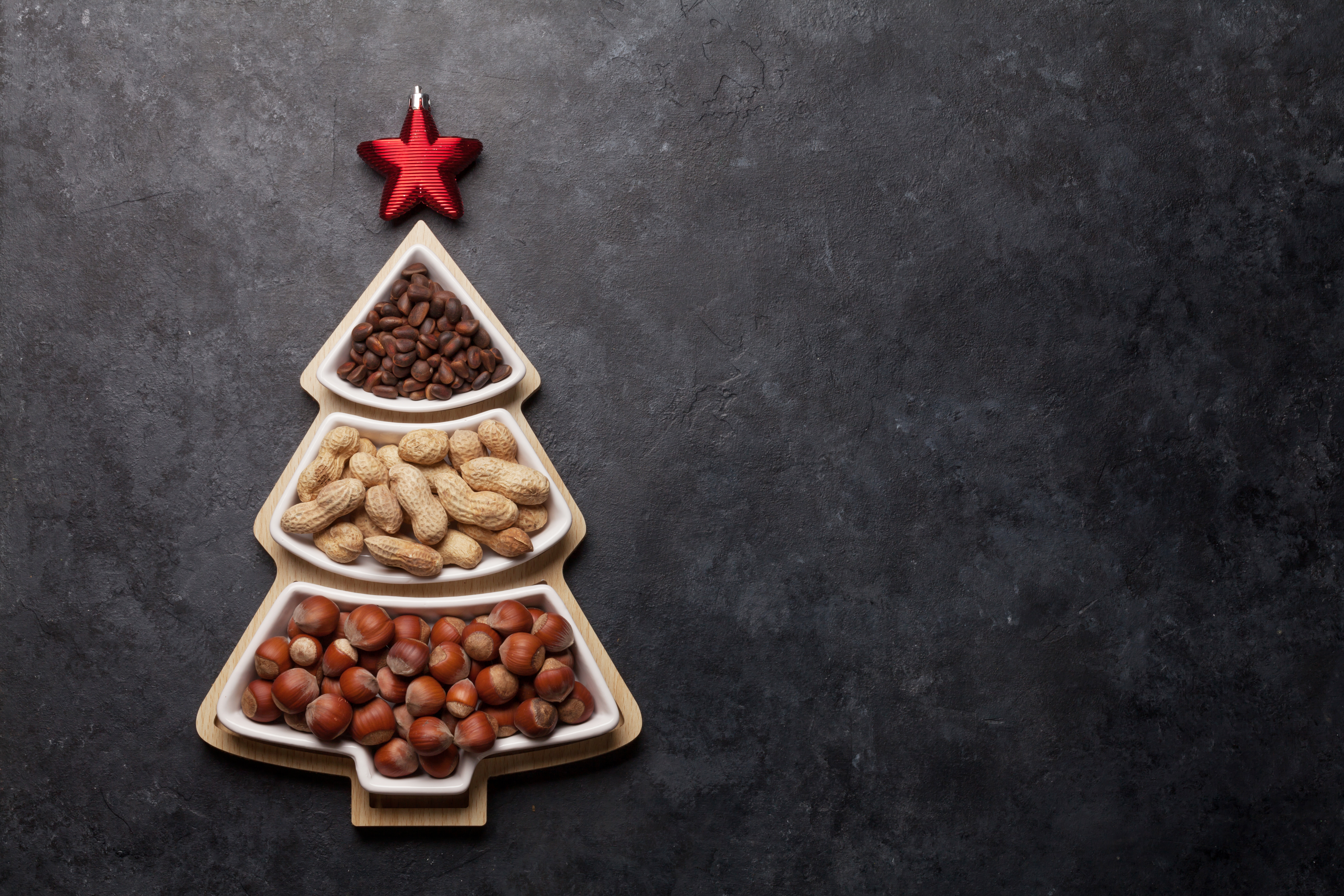
Conclusions
The festive period can present us with many temptations, but with some careful planning you can keep treats to a minimum and make them part of a meal, fill up on lots of healthy vegetables and drink in moderation. It’s good to take time out and celebrate the festive season, so enjoy yourselves, but try to be a little mindful of what and how you consume food and drink over this period to make sure you feel good and can stay healthy and happy during this time.
References
